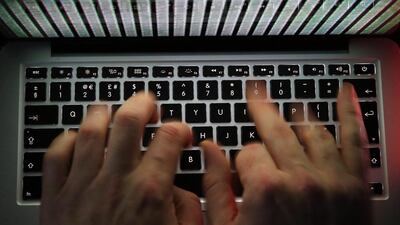The Government of Dubai’s assiduous approach to development over the past few decades has contributed significantly to the city’s growth. So much so that Dubai is rapidly evolving into what many would call a smart city.
This is, by no means, a coincidence. Adopting technology to advance the city’s infrastructure has always been part of the Government’s strategy, as detailed in the Dubai Plan 2021. It has even established specific entities, such as Smart Dubai, to achieve these aims.
While becoming more technologically advanced undoubtedly has its benefits, it also requires both Dubai’s Government and its citizens to function in ways with which they may not previously have been familiar. A big part of this includes being more amenable to data sharing so they can collectively produce vast amounts of information.
Steps have already been taken to encourage data sharing in the city, particularly through the recently announced Dubai Data Law. The law makes it easier to for both government and non-government entities to make use of the data they produce.
But what overall effect will data sharing have? Do the pros outweigh the cons? To find out, I’ve been conducting a research project on the ethical implications of data sharing. While further work still needs to be done before a definitive conclusion can be reached, I have established that there are many instances where sharing data has been beneficial.
Now-casting, for instance, refers to using data generated in real time to monitor and describe activities occurring contemporaneously, well before official data on these activities is available. Google Trends is a notable example of where now-casting can be used to track such things as the number of flu-related searches to identify possible flu outbreaks up to two weeks earlier than official health reports. This would provide the appropriate response services with much-needed time to react to an outbreak before it escalates.
In government healthcare departments, identifying new correlations in data can enhance the development of medication and the management of medical treatments. For example, the American Recovery and Reinvestment Act encourages medical entities across the United States to adopt digital record-keeping systems. Logging information this way would allow medical centres to share health information so that it can be accessed quickly in an emergency.
With these benefits come certain risks. While sharing medical data has its positives, it also means that an individual’s personal medical record is potentially more easily accessible to a much wider audience – through that data being irresponsibly shared or illegally hacked. It is vital in such instances that the privacy of individuals is not sacrificed.
It’s clear that sharing data can achieve promising outcomes but can also, at times, present us with certain risks. This, however, should not make us approach it ambivalently. We have not yet established the full potential of data sharing. We do, however, know that data can often be sensitive in nature. As such, we need to be both cautious and responsible with how it is shared. Doing so should set us on the right path to realising the full positive potential of data sharing.
Faisal Alkhatib is an associate researcher at the Mohammed bin Rashid School of Government

